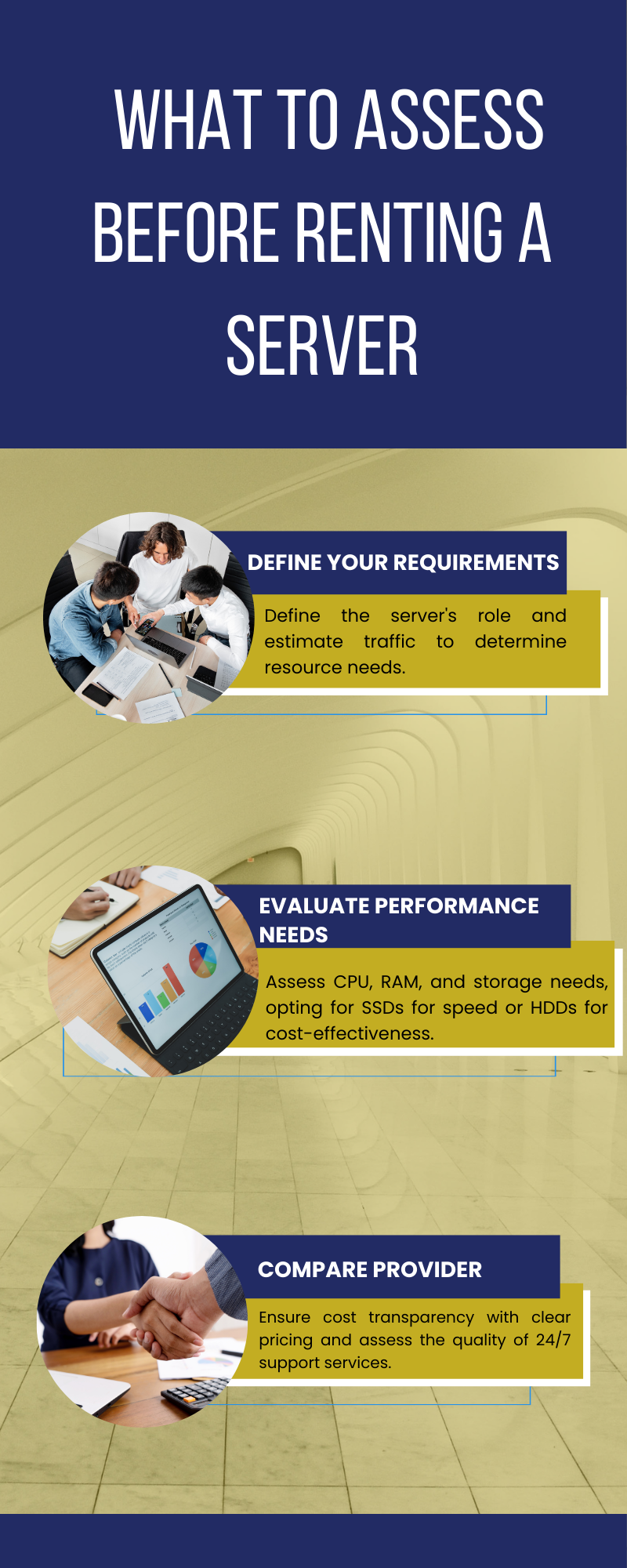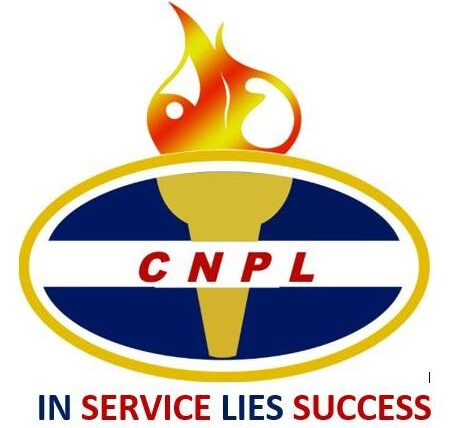Renting a Server for Your Business: Budgeting and Planning Tips

Introduction
In today’s fast-paced business environment, more companies are opting to rent servers as a smart and cost-effective IT solution. This growing trend allows businesses to remain agile and technologically updated without the burden of high costs associated with owning and maintaining hardware. An effective budget and strategic planning are essential to maximizing the benefits of server rentals. Renting a server enables organizations to fulfill operational requirements while effectively controlling expenses.
In this blog we will discuss about why renting a server for your business is a good idea and what plan you need to follow to implement it. Discover how server rentals can transform your business operations and enhance your bottom line.
Understanding Server Rentals
Server rentals allow businesses to lease server hardware from a provider rather than purchasing it outright. This option enables companies to utilize powerful servers without the hefty upfront costs typically associated with buying. Renting offers greater flexibility, allowing organizations to easily adjust their resources to match their changing needs.
One of the key benefits of renting servers is its cost-effectiveness. Instead of making a large initial investment, businesses can opt for a predictable monthly fee, simplifying budgeting and financial planning. Additionally, renting gives companies access to the latest technology, which means they can enjoy enhanced performance and security without the need for frequent upgrades.
In summary, server rentals provide a practical solution for businesses looking to improve their IT infrastructure while keeping their finances flexible and staying up-to-date with technological advancements.
Benefits of Renting a Server
Renting a server comes with a host of advantages that can significantly boost your business’s operational efficiency and streamline financial management.
1. Cost Management Made Easy
One of the most compelling reasons to rent a server is cost management. By choosing server rentals, businesses can avoid the hefty upfront costs of purchasing hardware. Instead, you can adopt an operational expense model that allows for predictable monthly payments. This flexible approach simplifies budgeting, ensuring you can effectively manage your cash flow without unexpected financial strains.
2. Scalability to Meet Your Needs
Another significant benefit of renting servers is scalability. This flexibility allows your organization to adjust resources according to real-time demand, making it a perfect fit for businesses with fluctuating workloads. Whether you’re facing seasonal traffic surges or rolling out new projects, rented servers can be swiftly scaled up or down. This means you only pay for the resources you need, keeping your expenses aligned with your actual usage.
3. Reduced Burden on IT Staff
Renting servers also helps in lightening the load for your in-house IT staff. Most rental agreements include maintenance and support, providing you with professional technical assistance without the added expense of hiring more personnel. This enables your IT team to focus on strategic initiatives that drive growth, rather than getting bogged down in routine server management tasks.
Steps to Budget for Server Rentals
Step 1: Define Your Requirements
Start by identifying your specific needs. Assess the required processing power, storage capacity, bandwidth, and any additional features, such as security protocols or backup systems. A clear understanding of these factors ensures you don’t overpay for unnecessary resources or under-allocate, causing operational bottlenecks.
Step 2: Research Providers
Explore server rental providers, comparing their offerings, pricing structures, and customer reviews. Look for companies with a proven track record in reliability, support, and technology updates. Evaluate providers who align with your business needs and budget constraints.
Step 3: Select a Rental Plan
Providers typically offer various plans, from pay-as-you-go options to fixed-term agreements. Choose a plan that accommodates both your current requirements and potential growth. Consider plans with flexibility for upgrading or downgrading based on evolving needs.
Step 4: Configuration Options
Many providers offer customizable configurations to meet specific business requirements. Ensure the server’s settings, such as operating systems, software, and hardware options, align with your operational needs. Tailoring your configuration minimizes inefficiencies and enhances performance.

Planning for Future Growth with Server Rentals
When it comes to renting a server, effective planning for future growth is vital to ensure your IT infrastructure can swiftly adapt to the evolving needs of your business. A key factor in this planning process is selecting a flexible rental agreement. Such arrangements enable companies to easily adjust their server resources without incurring hefty costs, making cash flow management much more straightforward.
To effectively anticipate future needs, businesses should analyze their growth projections by leveraging historical data and market trends. By understanding potential increases in user traffic, data volume, and application demands, you can accurately determine the server capacity required for your organization. For example, if you plan to expand your customer base or roll out new services, it’s likely you will need enhanced processing power and storage options.
Additionally, implementing scaling strategies is critical. With rented servers, businesses can swiftly ramp up resources during peak periods or scale down during slower times, ensuring that you only pay for what you actually consume. This level of adaptability not only boosts operational efficiency but also enables companies to respond quickly to market fluctuations, ultimately fostering sustained growth and success in a competitive landscape.
By proactively planning for growth, organizations can position server rentals as a strategic asset rather than a temporary fix, unlocking the full potential of their IT capabilities. Embrace the flexibility of server rentals to not just meet your current demands but to drive future growth and innovation!
Common Mistakes to Avoid When Renting Servers
Renting a server can be a smart and strategic decision for businesses, but certain common mistakes can lead to inefficiencies and escalating costs. Here are some critical pitfalls to steer clear of when renting servers:
1. Neglecting to Assess Actual Needs
One of the most significant errors businesses make is failing to accurately assess their server requirements. This oversight often results in over-renting or under-renting resources. To avoid unnecessary expenditures or performance issues, clearly define your business needs in terms of processing power, storage capacity, and bandwidth. Conducting a thorough analysis of your current and future demands can help you choose the right server rental that fits perfectly.
2. Overlooking Provider Reliability and Support Services
Another common mistake is ignoring the importance of provider reliability and support options. Failing to verify a provider’s uptime guarantees and customer support reputation can lead to costly downtime that disrupts business operations. When selecting a server rental provider, prioritize those known for their dependable service, robust uptime guarantees, and responsive customer support. This diligence ensures that you maintain seamless operations and minimize disruptions.
3. Focusing Solely on Short-Term Savings
Many companies make the mistake of prioritizing short-term savings over long-term costs. While an attractive rental price may seem beneficial at first glance, it could come with hidden fees or lackluster support that accumulate over time, costing you more in the long run. It’s essential to consider the total cost of ownership and evaluate the value of the services provided. Investing in reliable, high-quality support can save money and headaches in the future.
By avoiding these common mistakes, businesses can make informed, strategic decisions when renting servers. This proactive approach will help align your server rental choices with your operational goals and budget constraints, ultimately leading to a more efficient and effective IT infrastructure. Embrace informed decision-making to maximize the benefits of server rentals for your business success.
Conclusion: The Strategic Advantage of Renting Servers for Your Business
In conclusion, renting servers offers a powerful solution for businesses seeking flexibility, scalability, and cost-effectiveness in managing their IT infrastructure. The advantages of server rentals—such as eliminating large upfront costs, enjoying predictable monthly payments, and gaining access to the latest technology—make it an appealing choice for organizations of any size.
Careful budgeting and strategic planning are essential to ensure that your rental agreement aligns seamlessly with your operational needs and future growth projections. By viewing server rentals as a strategic option for business development, companies can direct their focus toward innovation and efficiency without the constraints of maintaining outdated hardware.
This approach not only optimizes resource allocation but also significantly enhances overall operational agility. By embracing server rentals, businesses can swiftly adapt to market changes while leveraging cutting-edge technology, ultimately positioning themselves for sustained success in a competitive landscape.
Choose compulease networks server rentals today to unlock the potential of your business, ensuring you stay ahead of the curve in an ever-evolving market!
